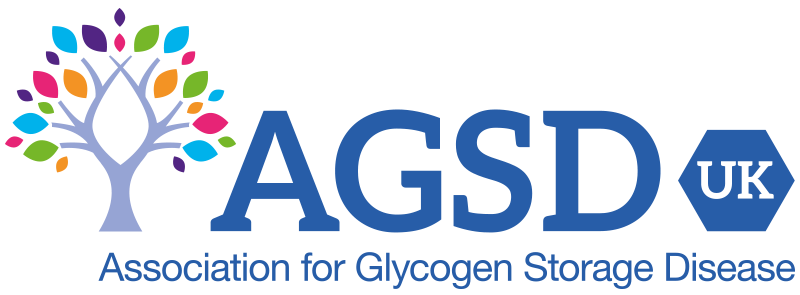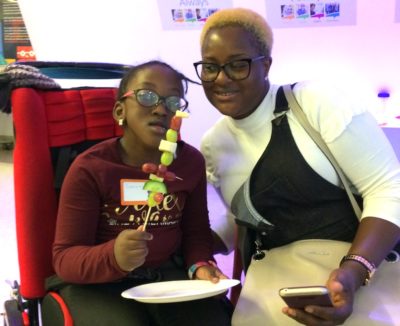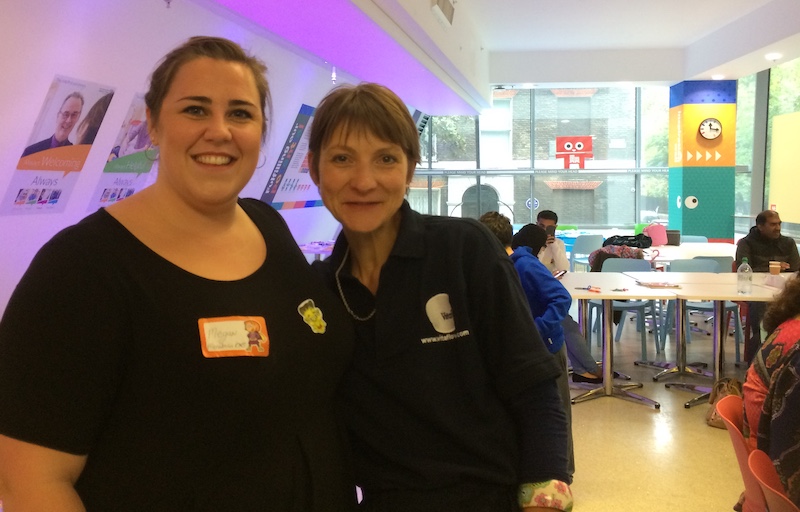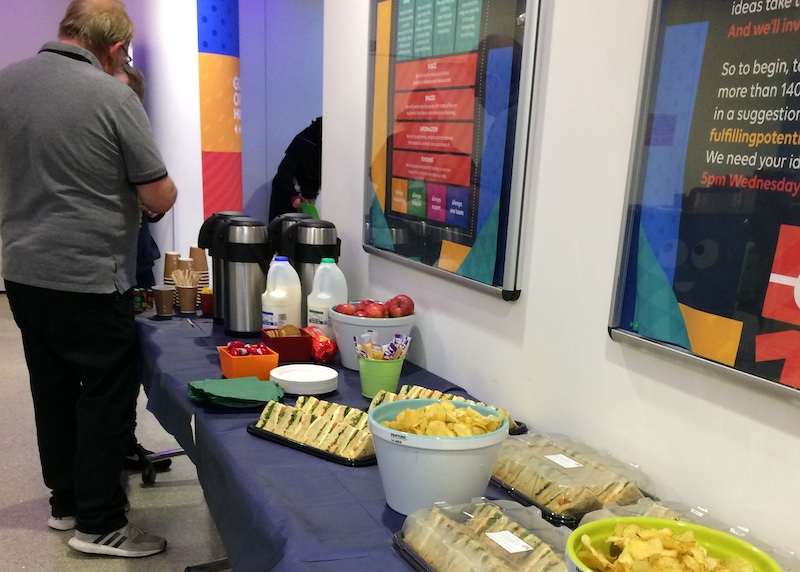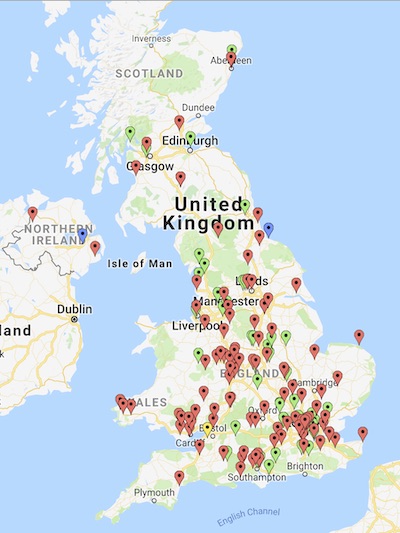After the diagnosis we are ready with a great deal of information, support, friendly contacts and signposting to other services where needed.
Family Days
Getting together with others in the same position as you really helps. Family days usually include entertainment for children, crafts, games and lunch.
At a recent Great Ormond Street Family Day funded by St James Place Foundation two Clinical Nurse Specialists and a Dietitian were on hand to talk informally with families, children and young people.
Photos from the Family Day at Great Ormond Street Hospital.
Map of people affected by Pompe
We maintain a map of people in the UK affected by Pompe, to help facilitate finding peer-to-peer support when it is desired. You can ask to have your name and a choice of contact information added to the map.
Go to a new tab with the map for more details, or contact the Pompe Support Advisor.
AGSD-UK social media
There is information and support available online for people affected by GSD. In addition to this website, AGSD-UK also have a Facebook page, and Instagram accounts.
![]()
![]() Visit our AGSD-UK Facebook page
Visit our AGSD-UK Facebook page
![]()
![]() Visit our AGSD-UK Instagram page
Visit our AGSD-UK Instagram page
Follow us on our social media channels and watch out for our posts!
Listening to you
The Specialist Care Advisor is a trained counsellor and is ready to listen. If you need more long term and ongoing counselling she can ensure you are referred to the best local source of help near you. Your GP can also refer you. Some workplaces offer free counselling via an internally managed, confidential service.
There is often a long waiting list for local counselling help from the NHS. Sometimes people are expected to join group learning sessions before they can have one-to-one help.
If more urgent talking therapies are needed parents, caregivers, family members or patients should contact their Clinical Nurse Specialist to ask for a referral to a clinical psychologist.
![]() If you or anyone you know is feeling completely overwhelmed right now then call Samaritans on 116 123.
If you or anyone you know is feeling completely overwhelmed right now then call Samaritans on 116 123.
![]() Visit the Samaritans web site.
Visit the Samaritans web site.
Privately paid counselling is an option too. This gives flexibility to choose the time and place and also select a counsellor with whom you feel comfortable. It is likely to cost between £30-50 per hour.
Wading through the maze: care navigating and advocacy
One of the most common problems is coping with a large number of different professionals involved in care. This is especially noticeable for families who have a child with infantile onset Pompe disease.
Support with meetings
The Care Advisor can work closely with you and can sometimes act as your representative at meetings or help you put your case across. This help can be especially useful if you feel you are not getting answers at all, or not getting the answers you need.
Many children with IOPD will need some night-time care. This can become tiring, especially if they are unwell with colds or a tummy bug as well. Many children have a night-time feeding peg and non-invasive ventilation. Both of these require management before bedtime and during the night too.
Direct payments
Social services can provide a home care assessment to ensure you get the extra care you need. This is sometimes provided within a care package called a Direct Payment or a Personal Budget. In this case you have some choice about who provides the care, as long as they meet a certain standard.
Supporting letters
The Advisor can discuss with you whether a letter from AGSD-UK can help explain your condition to someone who needs to know but does not understand. Such letters can be really useful for nursery, schools, employers and benefit applications.

AGSD-UK YouTube channel
Our YouTube channel GSD Screen, has many videos dedicated to informing and providing support to those affected by GSD.
The channel features videos from our Winter Seasons 2021 and 2022 including presentations from medical professionals and patients’ stories. The channel also has videos on GSDs, courses, meetings and conferences, and covering some of our fundraising events. Several of the GSDs have their own playlists. We also link to other channels which we think will be of interest.
Education Health Care Plan (EHCP)
The Specialist Care Advisor can help when an EHCP is being devised. This provides a formal way of recording special, individual care needs. It can help ensure a child with a medical condition gets the help they need to enjoy school and get the most from it.
Moving schools
Moving schools and starting in a new environment is also a time when the Specialist Care Advisor can help by attending meetings with staff to explain about Pompe disease. Your Clinical Nurse Specialist will also be able to help with this and some will be able to make school visits.
Join with others to harness social media
It can be very empowering to get involved in helping others and promoting the cause of GSD. Watch the video to see what Gemma Seyfang did.
Getting help through grants
Disabled Facilities Grants can be awarded by your local authority for home adaptations. If major home adaptations are needed, such as a wet room, extra bedroom or level access then an application can be made for this grant from the local authority. The process can be extremely lengthy, often taking more than a year.
Small crisis grants are available from AGSD-UK Hardship Fund managed by the Trustees. Usually these are no more than several hundred pounds. If there is a small item that you cannot afford but could help, contact the Specialist Care Advisor.
The Specialist Care Advisor can also signpost to several other funders as appropriate. Here are some examples:
- Campbell Burns Metabolic Trust
Helps under 9s with transport and small items of equipment. - Roald Dahl Marvellous Children’s Charity
Small grants available, a social worker must sign the application form. - Joseph Patrick Memorial Fund
Managed by Muscular Dystrophy UK and provides small grants for equipment. This is means tested. - BBC Children in Need Individual Grants
Individual grants are managed by the Family Fund Business Service for emergency essentials.
